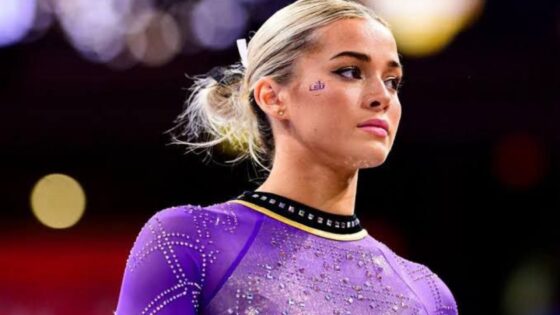She had the cash. She had the contract. She even had a designer lined up. But just days before she was set to receive the keys to Babe Ruth’s former New York apartment, Olivia “Livvy” Dunne found out the deal was dead. The building’s co-op board had quietly turned her down. What happened behind those walls was not disclosed formally, but the neighbors had opinions. And they offered them without hesitation.
Dunne, a former LSU gymnast and social media celebrity, took to TikTok to express confusion, saying she had “no clue” why the deal collapsed. But inside the West 88th Street building, the message was far more direct. “She messed up,” one resident stated bluntly. “The board got pissed because she put it on her Instagram.” According to that account, Dunne’s decision to announce the purchase, complete with a beachside video and the line “bought a nyc apt,” irked members of the building’s board. Her post went to over 5 million followers, drawing attention to a sale that had not yet cleared formal approval. In the eyes of those who had to vote on her application, that publicity may have raised alarms.
“She’s so little, like a child,” said another neighbor who recalled seeing Dunne visiting the apartment with her boyfriend, Pittsburgh Pirates pitcher Paul Skenes. “I have to admit, when I saw her from behind I didn’t think she was an adult. I thought she was a little boy.” While those comments veered into the personal, they were part of a broader pattern. Residents seemed to view Dunne’s image-driven lifestyle with skepticism. The board, according to reports, did not appreciate the preemptive celebration or the attention that followed.
The apartment itself, a $1.59 million pre-war unit in the Upper West Side, had been listed in March. Dunne, fresh off earning an estimated $9.5 million through NCAA’s NIL rules, quickly moved to secure it. She visited with Skenes, made an all-cash offer, and even began plans for interior decoration. But in buildings like this one, cash isn’t always king. Co-op boards retain sweeping authority to deny sales, often without explanation, and residents typically value discretion as much as financial qualifications. Dunne’s visibility worked against her, not for her.
In the end, the loss was more symbolic than financial. Olivia Dunne, with her substantial endorsement earnings, can find another apartment. But this episode offered a telling reminder that celebrity clout and real estate tradition do not always coexist. If her brand demands constant engagement, it may also demand quieter neighbors next time. Ones less concerned with appearances and more tolerant of followers. Meanwhile, as she faced a setback in real estate, Dunne recently received one of the biggest honors. She was listed among Titans on TIMES100 creators’ list.
Olivia Dunne crowned a titan on TIME100, as she keeps on redefining her digital influence
The announcement landed not with a shout, but with the quiet certainty of someone already accustomed to extraordinary outcomes. Olivia Dunne, a name once tied solely to collegiate gymnastics excellence, has been listed among the “Titans” on TIME’s 2025 TIME100 Creators list. The distinction places her in the rarefied company of digital creators whose work has altered the way influence operates across platforms. TIME’s editors chose Dunne not merely for her metrics, but for the substance behind her visibility, a blend of athletic integrity, cultural resonance, and sustained relevance.
On July 9, Dunne acknowledged the recognition on Instagram Stories, writing, “thank you @time for featuring me as a ‘titan’ in the top 100 creators list an honor! alongside some of the greatest!, humbled and honored.” Her response, measured and sincere, reflects a continuing evolution from athlete to entrepreneur, from public figure to emblem of generational self-definition. Though her online presence exceeds 13 million followers, Dunne’s impact lies not in reach alone, but in what that reach signifies, the mainstreaming of a new kind of athletic voice—independent, commercially viable, and unscripted.
What separates Dunne from the crowded field of digital notables is not simply her audience, but her effect. TIME’s list, which draws from creator marketplace data and editorial discretion, exists to spotlight individuals building culture outside legacy frameworks. In that context, Dunne’s place among the Titans is not symbolic; it is functional. She has altered the business architecture of athlete influence, and in doing so, demonstrated that the transition from sport to sustained relevance in media is not only possible but now, in part, expected.
The post Olivia Dunne’s Life Decision Backfires as Truth Behind Babe Ruth Apartment Denial Surfaces appeared first on EssentiallySports.
